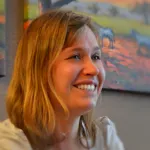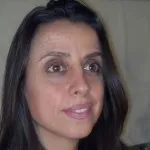Shortlisting the top 7 social ventures from 400+ applications across Asia - judges' view
This article is part of Young Entrepreneurs of the DBS-NUS Social Venture Challenge Series.
The DBS-NUS Social Venture Challenge Asia, a pan Asia competition for social enterprises aimed at identifying and supporting new social ventures that have the potential to generate scalable and sustainable social impact, is in its final phase with the finale event scheduled to be held on June 6th 2014. 7 finalists have been chosen from over 400 applications received from all over Asia.
Andrea M. Lane, Executive Director, FYSE and Fernanda Lima, Director (East & Southeast Asia), Developing World Markets are two of the judges & mentors who reviewed the social ventures’ applications and helped in shortlisting some high potential and impactful social businesses.
Edited excerpts of the conversation with Andrea M. Lane and Fernanda Lima:

Tell us a little bit about the kind of applications you reviewed
AML: I received three applications of social ventures for evaluation and I was strongly impressed by all the business plans. They were very clearly outlined. I reviewed three very technology driven ventures and the challenge for engineers still seems to be the elaboration of their ideas and vision without going too much into confusing technical details. There is room for improvement in this area. I found two ventures having a high potential social impact with an interesting financial sustainability plan in place. I would definitely like to further stay in touch with them to see how we could support them and to just follow their progress.
FL: I noticed a very diverse group of people with different backgrounds and education coming together in teams. All of them are dynamic entrepreneurs with a strong commitment to a positive social change.
What were some of the common strong points that you noticed in the social ventures’ applications?
AL: Clear description of social impact: The change these venture will drive on specific social/environmental issue was clearly mentioned. Almost all ventures were successful in clearly describing their market niche, the need for intervention and how their businesses will create change and on what scale.
Clear business model: Each venture must have a clear business model in place, including market size and potential; on how they price their product and how that compares to direct/indirect competitors; revenue forecast/ budget for the next 1-2 years and a clear strategy how they want to achieve these forecasts (through marketing, partnerships, rural salesforce etc.)

FL: I felt that the applicants are all very pro-active and are self-starters with a strong social commitment. They are innovative people and area also resourceful when it comes to engaging with resources and people around them.
What were some of the common weak areas social ventures need to work on?
AL:Too product focused: some of the business plans focused too heavily on the innovation and product description but little on social impact or financial sustainability.
Too positive financial forecasts: I am always very suspicious of any start-up team that predicts profits in year 1, especially for a new, disruptive product in an unproven market.
Team composition: a number of teams leaned strongly to one side, either being very engineer heavy or very social worker driven. That is acceptable as long as the team shows that they identified this a gap by bringing in board of director members or advisors to complement the team. A number of teams didn’t do that yet.
FL: Overall I found the financial projections and analysis quite weak. A robust set of financial projections with solid assumptions is required by any investor/business.
How has the experience of judging the DBS-NUS Social Venture Challenge Asia been?
AML: All applicants to this year’s competition have been very interesting and potentially impactful social ventures. All applications provided ample explanation of the ventures through their business plans, still it would always be great to have the opportunity to ask clarifying questions. All in all DBS and NUS have provided an effective and efficient way for applicants to present their ventures and for judges to go through the judging process.
FL: It was a pleasure to give feedback to a very interesting set of business models with clear positive social impact. Overall it was an organized and smooth process. It was not difficult to differentiate the business plans I read, giving them the right relative points, but it was hard to know if the expectation level of other judges was the same and therefore points across the board, comparable.
What impact do you think this challenge will have on the development and nurturing of the social entrepreneurship and innovation ecosystem in Asia?
AL: The competition provides a platform for social ventures to achieve three things
- Share their business plan and get feedback through the various stages of application: Feedback to the business plan is always one of the most valuable outcomes and can provide each team with crucial expertise to improve.
- Gain visibility, not only among other social entrepreneurs, but also among potential funders who often watch competition such as this closely to identify potential investment opportunities.
- Access funding: each of the ventures I judged needs further seed funding to get started, so winning the competition can provide them with the crucial few dollars to get started.
FL: Given DBS and NUS’ outreach, this initiative is crucial in fostering social innovation in Asia. Two crucial factors that can strongly catalyze social transformation are education and financial inclusion. I really appreciate DBS and NUS’ motivation and professionalism in making initiatives like this a reality for Asian communities.
You can watch the DBS-NUS Social Venture Challenge finale to be held on June 6th 2014 via a live webcast by registering here. Checkout the teaser video below







